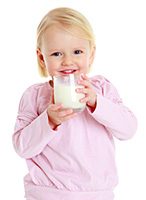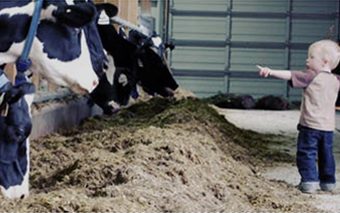Parenting dilemmas are to be expected. But in the dairy aisle?
From day one, we worry about milk and it never really goes away. The big question today is should we buy organic or conventional milk? So we asked the experts, the producers, and the processors and we milked their insight for all it’s worth.
Organic dairies and conventional dairies start with the same essential ingredient: a healthy cow. From there things differ, and can have an impact on what goes into the milk, how it’s processed, how it tastes and how long it stays fresh.
What makes organic milk organic?
In Canada, all organic products, including milk, are certified by the government’s Canada Organic Regime. Milk is certified as organic if it was produced following organic farming practices. Some of these include obtaining milk from cows given access to pasture as often as possible (some up to 22 hours a day), providing them with organic feed that does not consist of any harmful pesticides, chemicals, fertilizers, or genetically modified ingredients, and removing any cow treated by antibiotics from the herd for an extended period.
Conventional dairy farms, which are also regulated by the Canadian Food Inspection Agency, may follow some or many of the same practices. Canada, unlike the US and other countries, strictly prohibits the use of BVH (bovine growth hormones—used to increase production of milk) for all dairies, whether organic or conventional. So the good news here is that concerns about any growth hormones and their effects on young children do not apply to any Canadian milk, conventional or organic.
Tagged under: milk,Organic,healthy,Dairy,regular,farming
Category: food-news






